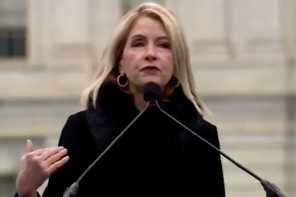The epiphanies came as suddenly and strong as my newborn’s projectile spit-up. Yes, I realized, I SHOULD wear a burping cloth. And also, the Paradox of the Preface is the key to universal religious harmony and world peace.
It might also help you lose that weight, quit smoking, and find the man or woman (or both) of your dreams, but that is for another essay.
What is the Paradox of the Preface?
Imagine an author writing something like this as a preface to her work:
I am certain, of each and every sentence in this work, that it is true, on the basis of various considerations including the careful arguments and use of evidence which led me to it. And yet I recognize that I am a fallible human being, likely to have made some error(s) in the course of this long work. Thus I am also quite certain that I have made some such error somewhere, even if I cannot say where.
Such a refreshingly honest preface! So what is the paradox?
Well, there is the implicit, apparent contradiction. To believe of each and every sentence that it is true is to believe, in effect, that not one of the sentences is false; but to believe that there is at least one error in the work is to believe that at least one of the sentences is false, and thus to contradict the first belief.
And yet both beliefs can seem so plausible! Indeed—and here’s the key—even after we become aware of the implicit contradiction, both the contradictory beliefs remain quite appealing in their own right.
Thus the paradox.
But the key to world peace?
Well, there may be a number of ways to respond to this paradox. Amongst them, you might take the certainty in your fallibility to undermine the certainty in any or all of your particular individual beliefs. My thought here is that those who take this route are not the ones primarily responsible for disturbing the global peace. Or you might take the certainty in each particular belief to take away the certainty of your general fallibility. My thought here is that the folks who go this route—convinced of their infallibility—are generally the troublemakers.
My hope, however, is that these same people might, just might, be open to a third option, if only they were aware of it.
What I suggest, instead, is that we simply acknowledge the paradox: that is, recognize that both contradictory propositions are, in their own right, extremely plausible. In the preface case this actually seems quite easy to do. My ultimate hope, then, is that world peace will break out when enough people simply acknowledge the paradox as well and begin applying it more generally.
Why is that?
Because acknowledging the paradox allows you simultaneously to say two things.
Choose some important, life-governing, very controversial thing you happen to believe in with great fervor: the existence of God (or perhaps atheism), the truth of Christianity (or perhaps Islam or Hinduism, etc.), absolute morality (or relativism), the right to bear arms (or the government’s right to regulate them), etc. Focusing on religion as our example, you can now say, first, that you believe, with certainty, in the truth of (say) Christianity, and thus believe, with equal certainty, in all the things entailed by that belief: that, say, all other competing religions are simply false.
But then you can say, second, something else: that you may be wrong.
Got it? You can simultaneously be certain that Christianity is true and everything conflicting with it is false, and yet acknowledge that you may be wrong without taking away your certainty. You can thus keep your certainties without having to claim that you are, in fact, and grossly implausibly, infallible. It’s what everyone (other than bakers) has yearned for since time immemorial: the proverbial cake, both eaten yet had!
Imagine, now, that all parties came to acknowledge the Paradox of the Preface as well. Then THEY could say that they are certain that (for example) Islam is true and everything conflicting with it is false—and yet acknowledge that they may be wrong without taking away their certainty.
Everyone could get what they most want: namely, certainty in the truth of whatever it is they are certain is true. This certainty can lead people to do all the things they should do when they are certain of a thing: defend it, live in accordance with it, try to spread it, etc. But once you add the proviso “but I may be wrong” you might, just might, no longer do it in quite the rather unpleasant or sometimes violent way that such things are often done.
Thus universal religious harmony and world peace.
I refer to this overall perspective as “Humble Absolutism.” You may believe, with certainty, in the truths in question, and that they are absolute truths. But you do it with the form of humility appropriate to the recognition that your belief might be false.
Now let me go find that burping cloth.




